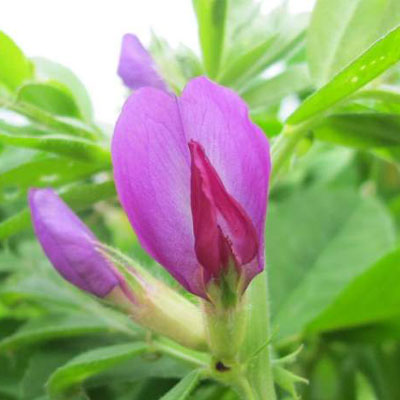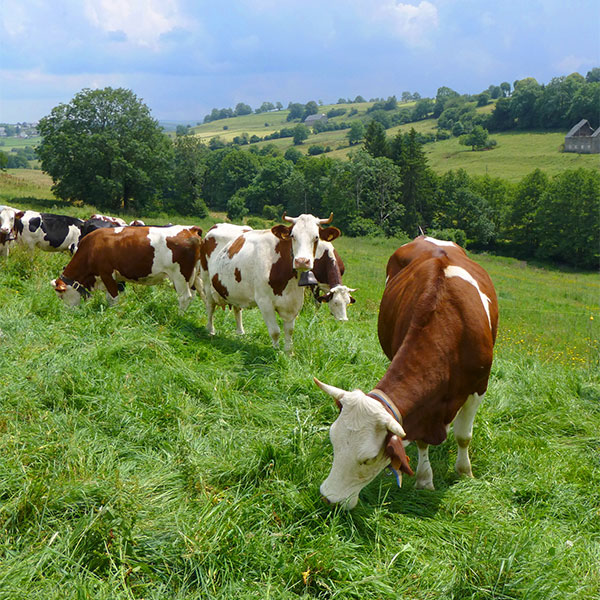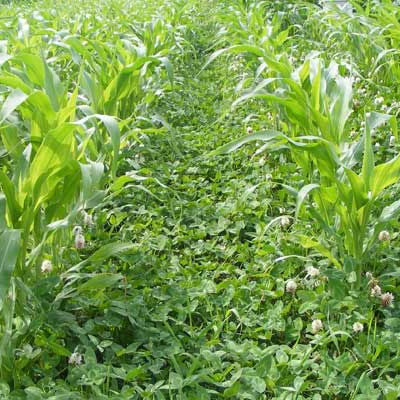INDIVIDUAL ESSENCES
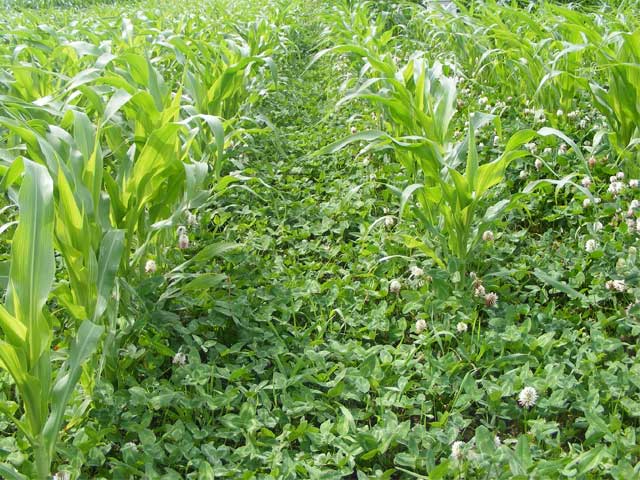
How to decide on the correct composition of green manure mixture?
What is your purpose in cultivating? Is it to have:
– a supply of nitrogen
– a supply of organic substance
– improved soil structure
COVER CROPS – sustainable agriculture
Cover crops
Using cover crops to go back to a sustainable form of agriculture offers several benefits; some see these benefits within a year of adoption, others see them in later years.
IMMEDIATE BENEFITS
- Preventing the growth of weeds: Plants selected for green manure develop rapidly, covering the ground quickly and thereby preventing the growth of weeds.
- Recovering nitrogen: nitrogen fertilisation is challenging for many types of (grass) cultivation, so the nitrogen residue after cultivation is absorbed and stored by these plants, thus preventing them from being washed away.
- The supply of nitrogen from nitrogen-fixing plants: A pure leguminous crop can fix large amounts of nitrogen absorbed from the air inside the plant. Once planted, the proteins inside the plant are broken down, releasing the nitrogen.
LONG-TERM BENEFITS
- The increase of organic substance offers various benefits such as improved soil structure and therefore increased infiltration ability, increased water retention, increased air circulation in the layers above the soil.
- Breaking the ground surface: Tillage plants break the ground surface.
- The increase of biological activity in the soil, that is, the increase of micro-organisms and invertebrates. The consequence is greater biodiversity and greater ability to react to external stimuli.
Types
VICIA SATIVA
Suitable for nitrogen fixing
Agronomic Characteristics
- This plant adapts easily to different climates, but is only moderately resistant to the cold.
- It adapts to clay, calcareous, deep, compact but permeable soil types. It does not tolerate prolonged soil moisture; pH5.5-8.
- It has a creeping, prostrate habit.
| Climate | Warm temperate |
|---|---|
| Intolerance | Water stagnation |
| Seeding Dose | 90/100 Kg/Ha |
| Sowing Period | Autumn – Spring |
| Use | Plant in autumn-winter for summer crops. |
VICIA VILLOSA
Suitable for nitrogen fixing
Agronomic Characteristics
- It thrives in sandy, acidic and alkaline soil types, but it shows a good adaptability to clay and moist soil types as well. It is slower than common vetch in principle, it recovers quickly and flowers a bit later. It has a creeping, prostrate habit.
- It may provide a cut, if mown before its flowering stage, given the possibility of regrowth.
- We recommend planting before seed maturation.
| Climate | Warm/cool temperate |
|---|---|
| Soil | Sandy, heavy clay soil, acidic and alkaline |
| Sowing Dose | 80 Kg/Ha |
| Sowing Period | Autumn |
| Use | Plant in autumn-winter for summer crops. |

VICIA FABA
Broad Bean
Suitable for nitrogen fixing
Agronomic Characteristics
- A very rustic species that adapts to soil types ranging from sandy to clay.
- It does not endure drought or prolonged water stagnation.
- Limited resistance to the cold.
- It is not very competitive with weeds if sown in its pure form.
| Soil | From loose to clay soil |
|---|---|
| Intolerance | It does not tolerate acidity, water stagnation or dryness |
| Sowing Dose | 200 Kg/Ha |
| Sowing Period | Autumn – Spring (northern Italy) |
| Use | Plant in autumn-winter |

LUPINUS ANGUSTIFOLIUS
Blue Lupin
Suitable for nitrogen fixing
Agronomic Characteristics
- It requires acidic soil, with moderate fertility
| Climate | Warm temperate |
|---|---|
| Soil | Poor, acidic and loose pH5-7 |
| Intolerance | Cold, heavy soil and calcium |
| Sowing Dose | 60 Kg/Ha |
| Sowing Period | Autumn – Spring |
| Use | Plant in autumn-winter for summer crops |

TRIFOLIUM ALEXANDRINUM
Egyptian Clover
Pianta adatta all’azoto fssazione
Agronomic Characteristics
- This plant belongs to warm temperate climates; it is not very resistant to the cold.
- Rapidly-growing plant. It does not endure acidity; pH6-8.
- It prefers soil with a medium texture, but it also adapts to clay soil.
- When sown in autumn (September), in northern Italy, it dies during the first cold days so it does not require further processing for the next crop.
| Climate | Warm temperate |
|---|---|
| Soil | Clay, medium texture, neutral, alkaline |
| Intolerance | Acidity, cold |
| Sowing Dose | 35 Kg/Ha |
| Sowing Period | Autumn (southern and central Italy) – Spring (northern Italy) |
| Use | Plant in autumn-winter |
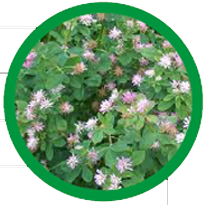
CRIMSON CLOVER
Suitable for nitrogen fixing
Agronomic Characteristics
- It adapts well to loose and clay soil; it tolerates acidity pH5.5-7.5.
- Excellent resistance to the cold.
- After autumn sowing, one single mowing is required in late spring or May.
- Beautiful spring blossoming which may benefit insect pollinators.
| Climate | Temperate |
|---|---|
| Soil | Sandy, heavy, clay, acidic |
| Sowing Dose | 30 Kg/Ha |
| Sowing Period | Autumn |
| Use | Plant in autumn-winter for summer crops |

SQUARROSE CLOVER
Suitable for nitrogen fixing
Agronomic Characteristics
- This plant belongs to the autumn-spring cycle, sufficiently resistant to the cold. At its rosette stage, it can withstand temperatures of -10°C for a long time.
- It takes root very well during winter and when the warm weather returns, it recovers quickly and grows thick, tall clumps.
| Climate | Autumn sowing, sufficiently resistant to the cold |
|---|---|
| Soil | Medium texture, heavy and fresh, also clay calcareous. |
| Sowing Dose | 35 Kg/Ha |
| Sowing Period | Autumn |
| Use | Plant in autumn-winter |
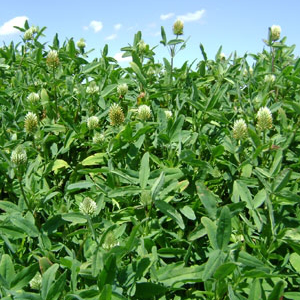
ROCKET
Trap/biofumigant plant
Biofumigant plant
Agronomic Characteristics
- This plant belongs to the Brassicaceae family and it is characterised by good rusticity and adaptability to different pedoclimatic conditions.
- In the first stage, it attracts and concentrates nematodes in the surface layers of the soil.
- Once chopped and planted, because of the content of glucosidic and glucosinolate compounds following the process of hydrolysis, it releases different molecules including isothiocyanates and nitriles which carry out biocide action against nematodes and funghi in the soil.
| Cycle | Short 55-60 days |
|---|---|
| Sowing Dose | 10 Kg/Ha |
| Sowing Period | All year. Resistant to cold in its young stage |
| Use | Can be planted all-year |

SINAPIS ALBA
Mustard
Plants that till the soil
Agronomic Characteristics
- Well-developed taproot (1.5m).
- This plant belongs to warm temperate climates; it perishes in winter frosts.
- Very fast development, it suppresses weeds.
| Sowing Dose | 25 Kg/Ha |
|---|---|
| Sowing Period | Plant in autumn-winter or spring |
| Use | From spring to autumn |

RADISH
Plants that till the soil
Agronomic Characteristics
- Well-developed taproot (1.5m). Good resistance to the cold.
- It may show signs of regrowth.
- Huge biomass production, prevents the growth of weeds.
| Sowing Dose | 25 Kg/Ha |
|---|---|
| Sowing Period | Plant in autumn-winter or spring |
| Use | From spring to autumn |

RYE
Restabilising soil
Agronomic Characteristics
- It prefers cold, wet weather and is the cereal crop that is most resistant to winter coldness.
- Ph 5.5 – 7.5.
- Very early development in springtime.
| Climate | Temperate, cold and damp |
|---|---|
| Soil | Poor, acidic loose |
| Sowing Dose | 200 Kg/Ha |
| Sowing Period | Autumn |
| Use | Plant in autumn-winter |

PHACELIA
Restabilising soil
Agronomic Characteristics
- Great ability to store nutrients (catch crops).
- Very fast development rate and weed restraint.
- An important plant for pollinator insects thanks to its great and long flowering period.
| Climate | Temperate |
|---|---|
| Soil | From clay to loose |
| Sowing Dose | 15 Kg/Ha |
| Sowing Period | Autumn (southern and central Italy), Spring (northern Italy) |
| Use | It can use the blossoming period in order to produce honey. Plant in autumn-winter for summer crops (southern and central Italy). Plant in summer for autumn-winter crops (northern Italy). |

FORAGE RAPE
Restabilising soil
Agronomic Characteristics
- This species has an excellent root system and great green mass production.
- Excellent weed restraint and storage of nutrients.
| Sowing Dose | 10 Kg/Ha |
|---|---|
| Sowing Period | Autumn |
| Use | Plant in autumn-winter |

Autumn Sowing
Sowing Period: Autumn
Harvesting Period: April/May depending on climatic conditions


